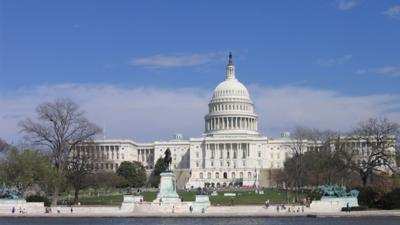Tue, Oct 10, 2017
Each Must Be Considered By The Committee For Inclusion
If you were wondering why the AIRR Act funding the FAA was being delayed again, it might be because members of the U.S. House have offered 158 amendments to the bill, though 51 came in after the October 5 submission deadline, and six have already been withdrawn by their sponsors.

Among the amendments filed are one from Congressman Peter DeFazio (D-OR) to strike "air traffic control privatization (title II) and inserts H.R. 2800, the “Aviation Funding Stability Act”, which provides a stable, predictable aviation funding stream by taking the Airport and Airway Trust Fund off budget; institutes Federal Aviation Administration procurement and personnel reform; and authorizes funds to rebuild and modernize aging air traffic control facilities across the United States." Another DeFazio amendment would require the private air traffic control corporation to pay fair market value for the transfer of assets (including real property) from the Federal Aviation Administration; and requires the corporation to return to the U.S. Treasury the proceeds of any sales of property or equipment within the first three years of the corporation.
Congressman Mike Thompson (D-CA) to establish certain protections for airline passengers, including requiring airlines to plainly disclose the rights and responsibilities of their passengers, requiring the FAA to develop and promulgate equipment standards for aircraft bathrooms and seats, and clarify the circumstances in which air carriers are considered responsible for delays or cancellations.
Another, sponsored by Congressman Stephen Lynch (D-CA), would direct the FAA administrator to identify and facilitate opportunities to develop and execute memoranda of understanding between the FAA and state and local authorities that operate airports to reduce the overflight noise impacts of aircraft operations resulting from the implementation of NextGen precision-based Performance Based Navigation (PBN) procedures, including RNAV. Such memoranda would be based on the innovative memorandum of understanding executed between the FAA and the Massachusetts Port Authority to analyze noise reduction opportunities through changes to PBN procedures.
The rules committee must establish a procedure for debate, including the time allotted on the House floor, for each amendment. No date for that floor debate has been scheduled.
(Image from file)
More News
Aero Linx: International Federation of Airworthiness (IFA) We aim to be the most internationally respected independent authority on the subject of Airworthiness. IFA uniquely combi>[...]
Ultrahigh Frequency (UHF) The frequency band between 300 and 3,000 MHz. The bank of radio frequencies used for military air/ground voice communications. In some instances this may >[...]
A Few Questions AND Answers To Help You Get MORE Out of ANN! 1) I forgot my password. How do I find it? 1) Easy... click here and give us your e-mail address--we'll send it to you >[...]
From 2019 (YouTube Edition): Learning To Paint Without Getting Any On Your Hands PPG's Aerospace Coatings Academy is a tool designed to teach everything one needs to know about all>[...]
Also: Sustainable Aircraft Test Put Aside, More Falcon 9 Ops, Wyoming ANG Rescue, Oreo Cookie Into Orbit Joby Aviation has reason to celebrate, recently completing its first full t>[...]
 ANN's Daily Aero-Linx (05.06.25)
ANN's Daily Aero-Linx (05.06.25) ANN's Daily Aero-Term (05.06.25): Ultrahigh Frequency (UHF)
ANN's Daily Aero-Term (05.06.25): Ultrahigh Frequency (UHF) ANN FAQ: Q&A 101
ANN FAQ: Q&A 101 Classic Aero-TV: Virtual Reality Painting--PPG Leverages Technology for Training
Classic Aero-TV: Virtual Reality Painting--PPG Leverages Technology for Training Airborne 05.02.25: Joby Crewed Milestone, Diamond Club, Canadian Pilot Insurance
Airborne 05.02.25: Joby Crewed Milestone, Diamond Club, Canadian Pilot Insurance



